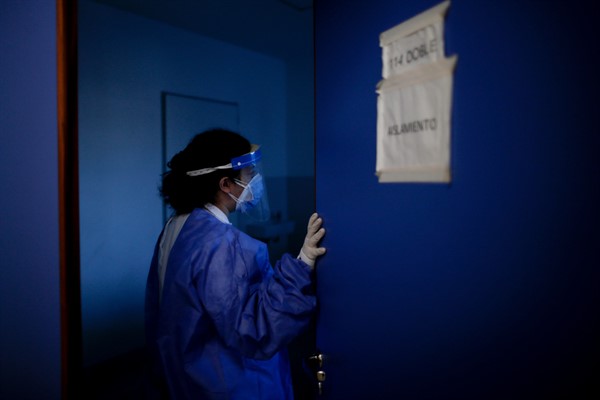Last week, the Independent Panel for Pandemic Preparedness and Response released its long-awaited final report, “COVID-19: Make It the Last Pandemic.” Co-chaired by former Liberian President Ellen Johnson-Sirleaf and former New Zealand Prime Minister Helen Clark, the 13-member panel was established in September 2020 at the behest of the World Health Assembly to examine the global response to the coronavirus pandemic and propose improvements based on the lessons learned. Its final report offers several useful recommendations designed to create “a new system that is coordinated, connected, fast-moving, accountable, just and equitable.” What is missing is a strategy to achieve these reforms and any mechanism to enforce state compliance with them. The panel also undercuts its credibility by pulling its punches with regard to China’s initial failings at the outset of the pandemic that allowed it to spread globally.
The report documents flaws in every phase of the global response to COVID-19, which the panel accurately describes as “the worst combined health and socioeconomic crisis in living memory.” These are by now well known. Despite repeated warnings about the growing pandemic risk posed by zoonotic diseases, the world never took preparation seriously or invested resources commensurate with the threat. Once the initial Wuhan outbreak occurred, surveillance and alert systems failed to keep pace with the spreading virus. Chinese authorities were slow to react, and the World Health Organization did not declare a public health emergency of international concern, or PHEIC, until Jan. 30, contributing to “delay, hesitation, and denial.”
Even then, many governments adopted a lethargic, “wait and see” attitude, rather than implementing commonplace public health measures like testing, tracing, isolating and social distancing. In retrospect, the report concludes, “February 2020 was a lost month.” The worst performing countries—including, of course, the United States—were those whose governments “devalued science, denied the potential impact of the pandemic, delayed comprehensive action, and allowed distrust to undermine efforts.”

